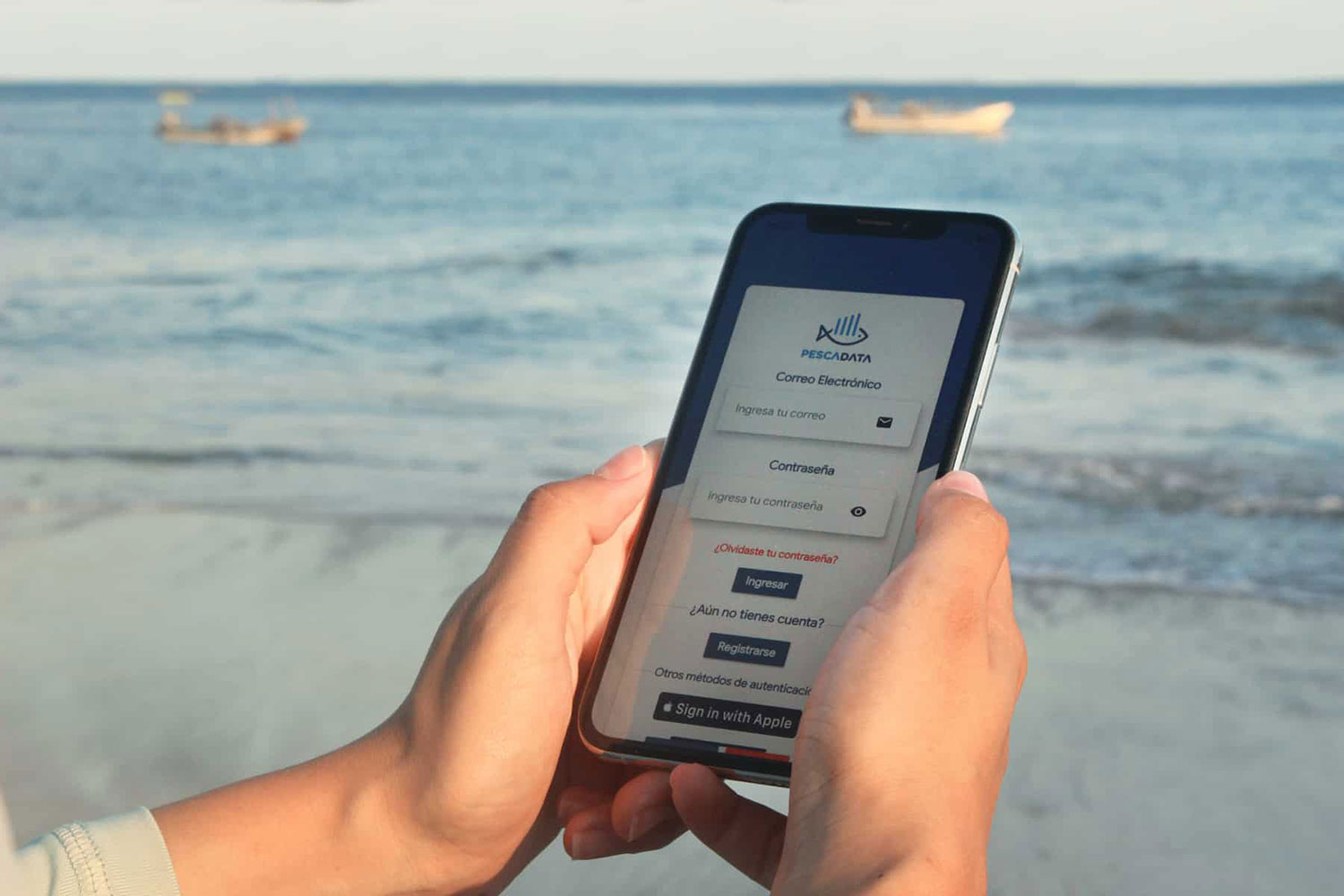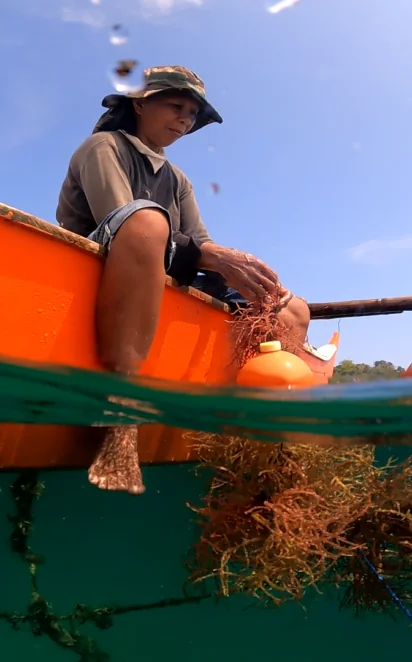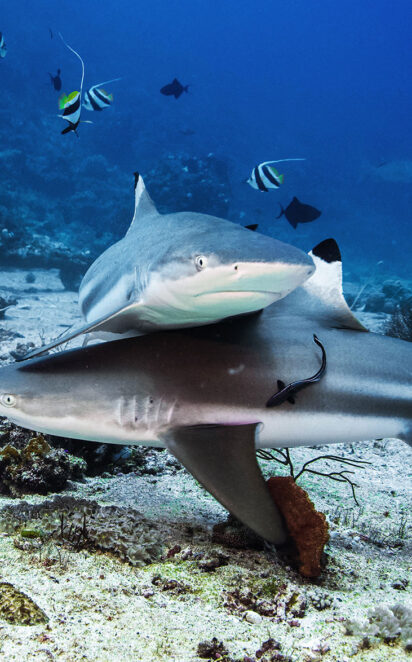PescaData App: Enhancing financial decision making with sustainable fishing practices
Project Lead: Servicios Digitales Para La Pesca Sostenible S.A.P.I de C.V
Supporting Partners: Comunidad y Biodiversidad (COBI), Armillaria, and Kokonut Studios
Support: Initial support for this project was provided by the Government of Canada to COBI. This project also received mentoring and training from the Ocean Resilience Innovation Challenge (ORIC) which is financially supported by the Swiss Re Foundation, the UK’s Blue Planet Fund, and the United States Department of State.
Location: Mexico, Honduras, Colombia, and Peru.
Financial Innovation: This social enterprise is providing a Software as a Service to small-scale fishing organisations to improve fisheries sustainability and financial decision-making.
Summary
This project seeks to scale the PescaData App which improves data collection, communications and financial decision-making among small-scale fishing organisations. Through the App, fishers can record and share data (such as costs, daily catches, gear types, bycatch), access weather forecasts, and implement community-based solutions for ocean sustainability without relying on traditional intermediaries such as such as NGOs and governments. The software can ultimately accelerate peer-to-peer knowledge sharing – so action can scale rapidly.
Challenge
Over 1.2 million people in the Latin American and Caribbean (LAC) region participate in small-scale fishing (SSF) – with over 300,000 working in Mexico alone1. Small-scale fishers contribute to the same local and international markets as industrial fisheries, yet they face unique challenges such as the remote locations of their fisheries and limited opportunity to communicate with others. Consequently, they experience restricted access to information and are unable to collectively adapt to local and global shocks driven by climate change, overfishing and pollution. This limited access is made even more challenging by under-funded and data-poor management2.

Solution
PescaData was created to meet the communications needs of over a million small-scale fishers in the region. It uses a bottom-up approach that is fisher-centric, rather than the typical market-based approaches that require high-end consumer participation. PescaData’s mobile and web app suite provides a balance scorecard to log daily fish catch, costs and inputs along with a space to share information such as the fishing gear they use, actions to achieve eco-certifications and working standards within fishing organisations, and how they contribute to upholding human rights. On the PescaData App, fishers are also the owners of their own data, ensuring that they are the main beneficiaries, and not only sources of data.
Scalability and Next Steps
In 2023, the non-profit Comunidad y Biodiversidad (COBI) transferred the technology to the social enterprise Servicios Digitales Para la Pesca Sostenible SAPI de CV to scale the implementation of PescaData.
Through the ORIC23 cohort, Servicios Digitales is currently exploring ways to build and scale its model by providing the Software as a Service to fishing organisations. By 2030, it plans to have 4,730 fishing organisations using management tools. Servicios Digitales is also building on previous work to connect fishers with microcredits for sustainability at competitive rates. This way, fishers will receive adequate financial compensation for their activities while using sustainable fishing practices. Furthermore, the project aims to launch an e-learning programme to promote sustainable fishing practices to the private sector. By 2025, its aim is to be fully operational in five countries.
“The logs help us to know how we are doing year after year, respecting the regulations, they define information and quantity that we have each year and the areas that we can fish and see the production, decrease of resources and take actions that can improve or change actions that may affect our activity. It benefits not only the cooperative, but the community”– Fisher from the Caribbean.
1 https://www.fao.org/publications/home/fao-flagship-publications/the-state-of-world-fisheries-and-aquaculture/2022/en
2 https://www.sciencedirect.com/science/article/abs/pii/S0308597X12002448




